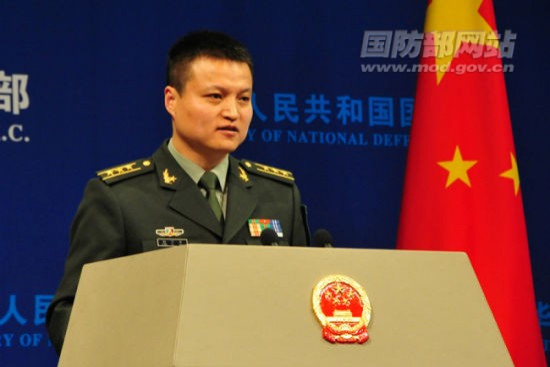Chinese Military: US Hacking Allegations Are ‘Irresponsible’

China responded to U.S. claims of its supposed involvement in cyberattacks by calling the accusations irresponsible and unprofessional.
At a news conference Thursday, defense ministry spokesman Yang Yujun criticized attempts to implicate China without proper investigation and irrefutable evidence.
The remarks were in response to testimony this week by Gen. Keith Alexander, commander of the U.S. Cyber Command and director of the National Security Agency, to the Senate Armed Services Committee.
Alexander echoed recent statements by Defense Secretary Leon Panetta and the Federal Bureau of Investigation that cyberattacks would soon surpass terrorism as the biggest threat to the United States. The country would make it more difficult for the Chinese to do what they're doing, the general said.
Absolutely, he said when asked by Republican Sen. John McCain of Arizona if China is a major cybersecurity threat. Alexander also linked Chinese industrial espionage to hacker attacks on U.S. Internet security company RSA, which is owned by EMC Corp. (NYSE: EMC)..
'China Is A Victim'
U.S. defense experts and intelligence analysts have claimed over the past year that hackers supported by China's central government are to blame for a number of cyberattacks on U.S. technology, defense and financial companies.
The accusations resonate in China, where state media have devoted attention to foreign criticism and the U.S. government's information-security policies.
But according to the defense ministry's Yang, China is a victim of cyberattacks, and reckless accusations will only lead to mutual distrust.
The official said that between January and March, China had been subjected to about 80,000 cyberattacks from external sources.
Defense Spending
Chinese officials have often stated that an excessive fear of China's military development reflects what they say is an irrational China threat mentality in the U.S that jeopardizes a mutually beneficial relationship between the two countries.
China has become the second-highest military spender after the U.S, with a defense budget equivalent to $106 billion in 2011. This year, the budget of the People's Liberation Army will increase by 11.2 percent.
Yet according to Yang, this increased spending isn't meant to threaten. China needs to spend more on defense, he said, for increases in officers' and soldiers' salaries, improvements to training and military educational institutions, and the equipment needs of military transformation with Chinese characteristics.
The People's Liberation Army has gone through a major transformation in past decades, especially in developing cyberspace and hacking capabilities. Chinese scholars say these make the country better able to fight against the more powerful conventional forces of the United States. U.S. and Chinese analysts also believe cyber-training and preparations for information warfare are becoming increasingly integrated into Chinese defense preparations.
Despite the surge in military spending, according to official figures Beijing allocates about 1.3 percent of its gross domestic product to defense. The Pentagon has proposed a budget of $614 billion for fiscal 2013, or more than 4 percent of U.S. GDP.
© Copyright IBTimes 2024. All rights reserved.




















